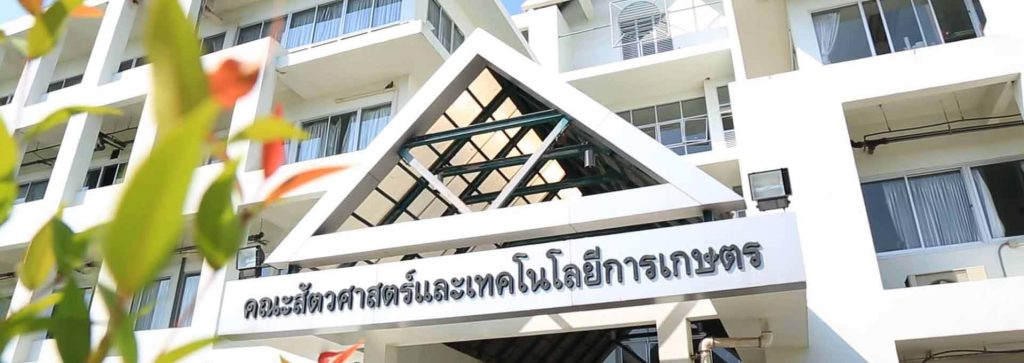Faculty Of Animal Sciences

History
With a policy of extending opportunities for education to reach more people in the country, Silpakorn University established the Faculty of Animal Sciences and Agricultural Technology at Phetchaburi Information Technology Campus in 2001. The new faculty aims at producing graduates with sound knowledge in both theory and practice of animal sciences. Opportunities will be available for students to learn and practice at government as well as private laboratories and farms to ensure that the students will be well-equipped to work efficiently upon graduation. The graduates will be able to work in government sectors, private sectors, as well as setting up animal farms of their own. At the Faculty of Animal Sciences and Agricultural Technology, research activities aiming at developing and improving livestock and crop productivity and sustainability are conducted, and outreach projects are continuously implemented through a series of training workshops and other means of communication.
Curriculum
Bachelor’s Degree Program
– Bachelor of Science (Animal Sciences and Agricultural Technology)
– Bachelor of Science (Aquatic Animal Production Technology)
– Bachelor of Science (Crop Production Technology)
– Bachelor of Science (Agribusiness)
– Bachelor of Science (Agricultural Leadership and Communications)
Master’s Degree Programs
– Master of Science (Animal Science)
– Master of Science (Bioscience for Sustainable Agriculture)
Doctoral Degree Programs
– Doctor of Philosophy (Bioscience for Sustainable Agriculture)
Faculty Tree Symbol
Agarwood
Faculty color
Ivory white
Core Competencies
Producing graduates and transferring technology in agriculture to communities
Vision
Producing graduates in agriculture integrated with wisdom to community
Mission
- To produce graduates with academic knowledge and professional skills in agriculture to match the needs of their stakeholders
- To conduct the research knowledge and innovation in agriculture and develop research to international standard for the benefit of community
- To transfer technology in agriculture to community
Values: ASAT
- Adaptability for excellence
- Service to the society
- Advanced research
- Think creatively
Identity
Creativity, Curiosity, Assiduity

